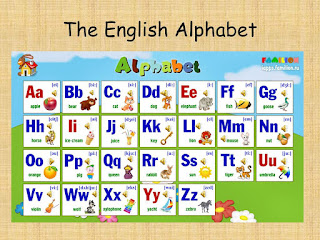A Dangling Modifier
 |
| "This would be a great addition to your collection." Is that another example of a Dangling Modifier? |
The word dangle means to hang, to carry, or to hold loosely.
Also, many words fall under the description of what a modifier is. Any word that adds to the meaning of another word or alters it to some degree is a modifier; and according to that adjectives, adverbs, articles and even nouns fall into that description. Most of us know how to use them but even the most seasoned writer falls into an inadvertent erroneous use of modifiers which is when these words are labeled as "dangling" modifiers.
Let's use as an example the second sentence of the paragraph:
Any word that adds to the meaning of another word or alters it at some degree is a modifier.
Let's eliminate the term word from the sentence so we have now:
Any word that adds to the meaning of another or alters it to some degree is a modifier.
What's the problem? As the term word has been taken out the adjective another is not in a position to clarify which word exactly is modifying. Is it word? Or is it meaning? It is clear to us, but not to the rest and therefore another is now a Dangling Modifier.
Here is another:
Before arriving, brochures were given to the passengers.
The problem here is we do not know who gave the brochures to the passengers (of course we also lack the benefit of the context) and we must assume it was some crew member, or perhaps someone else.
Let's use as an example the second sentence of the paragraph:
Any word that adds to the meaning of another word or alters it at some degree is a modifier.
Let's eliminate the term word from the sentence so we have now:
Any word that adds to the meaning of another or alters it to some degree is a modifier.
What's the problem? As the term word has been taken out the adjective another is not in a position to clarify which word exactly is modifying. Is it word? Or is it meaning? It is clear to us, but not to the rest and therefore another is now a Dangling Modifier.
Here is another:
Before arriving, brochures were given to the passengers.
The problem here is we do not know who gave the brochures to the passengers (of course we also lack the benefit of the context) and we must assume it was some crew member, or perhaps someone else.
It is better like this:
Before arriving, one of the flight attendants gave brochures to the passengers.
This last case of omission of an implied subject is also a case of a Dangling Modifier since the word brochures is introduced with no prior explanation.
Before arriving, one of the flight attendants gave brochures to the passengers.
This last case of omission of an implied subject is also a case of a Dangling Modifier since the word brochures is introduced with no prior explanation.



Comments
this is a confusing topic for me but with this explanation I can understand better.
I had never thought about it. I had known that in some languages if not possible to eliminate the noun because is a grammatical rule but it's possible in Spanish, but for the foreigners is a little bit difficult to understand.